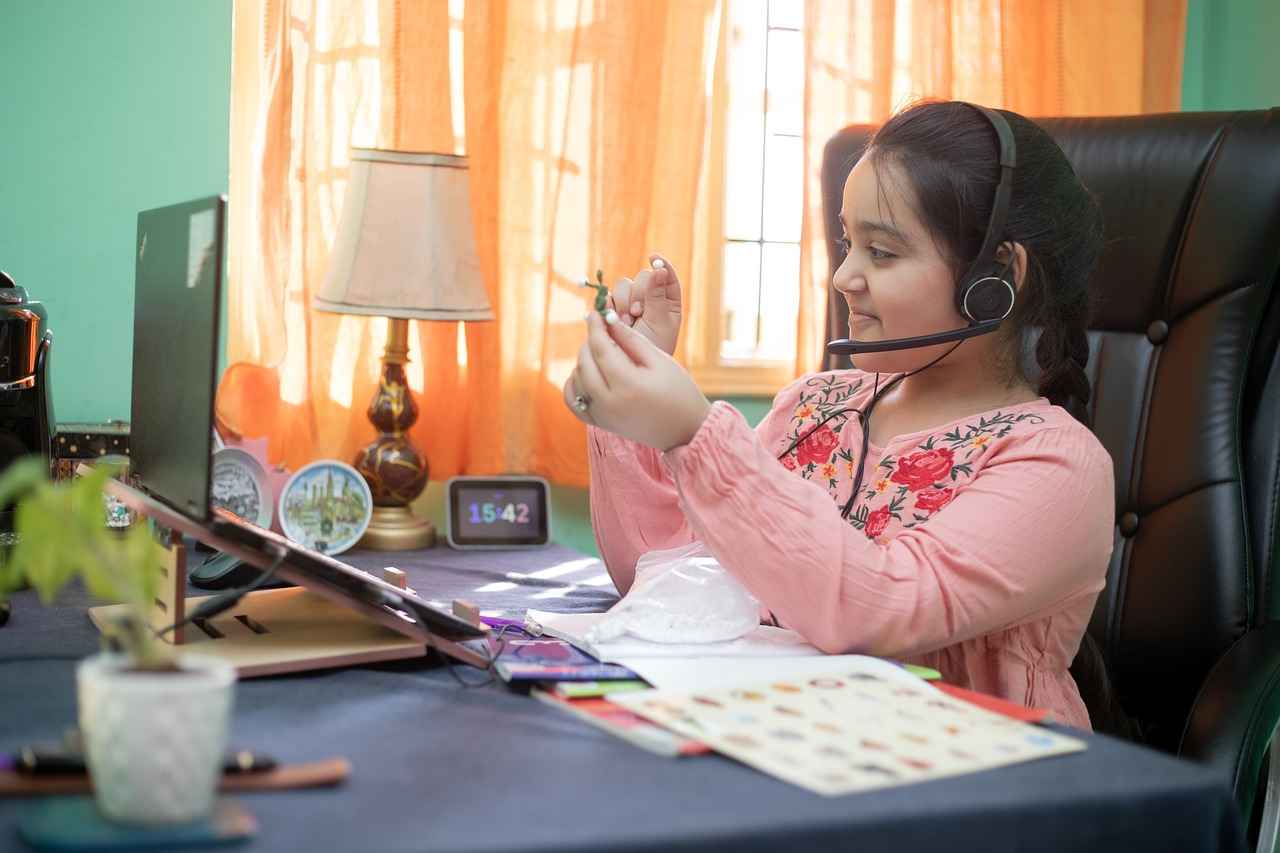This article serves as a comprehensive guide to successfully landing part-time remote customer service jobs. It covers crucial tips, essential skills, and effective strategies to boost your chances of being hired.
Understanding Remote Customer Service Roles
Remote customer service roles involve assisting customers through various channels, such as phone, email, and chat, without the need for a physical office presence. Understanding the intricacies of these roles is essential for tailoring your application effectively.
Essential Skills for Remote Customer Service Jobs
To excel in remote customer service, candidates must possess key skills, including:
- Communication
- Problem-Solving
- Empathy
These skills significantly enhance customer interactions and improve overall service quality.
How to Find Remote Customer Service Job Opportunities
Finding remote job opportunities requires a strategic approach. Consider the following methods:
- Job Boards and Websites: Explore platforms that specialize in remote job listings.
- Networking Strategies: Leverage professional networks and social media to connect with potential employers.
Crafting an Effective Resume and Cover Letter
Your resume and cover letter are your first impressions. Here are some tips:
- Resume Tips: Ensure your resume is well-structured and tailored to customer service roles.
- Cover Letter: Write a persuasive cover letter that highlights your relevant skills and experiences.
Preparing for Remote Job Interviews
Interviews for remote jobs can differ from traditional ones. Prepare by:
- Understanding common interview questions.
- Demonstrating your remote work skills confidently.
Tips for Success in Remote Customer Service Jobs
Once hired, excelling in your role is crucial. Consider these practical tips:
- Staying Organized: Utilize tools to manage your tasks effectively.
- Building Rapport: Create positive interactions with clients to enhance their experience.
Conclusion: Your Path to Remote Customer Service Success
In conclusion, securing a part-time remote customer service job requires thorough preparation, skill development, and effective strategies. By following the outlined steps, you can significantly enhance your chances of success in this growing field.

Understanding Remote Customer Service Roles
Remote customer service roles have become increasingly vital in today’s digital landscape. These positions allow individuals to assist customers through various channels such as phone, email, live chat, and social media, all without the need to be physically present in a traditional office setting. This flexibility not only benefits employees but also enables companies to provide efficient support to their customers across different time zones.
To excel in these roles, it is essential to understand the unique dynamics involved. Remote customer service representatives must navigate technology effectively, manage their time efficiently, and maintain clear communication, all while fostering a positive customer experience. Understanding these responsibilities is crucial for tailoring your application and demonstrating your suitability for the role.
One of the primary aspects of remote customer service is the ability to adapt to various communication platforms. Whether it’s through a chat interface or a phone call, being proficient in these tools is non-negotiable. Moreover, remote representatives often work independently, requiring strong self-discipline and motivation to meet performance metrics and customer satisfaction goals.
Additionally, a successful remote customer service professional must possess excellent problem-solving abilities. Customers often reach out with complex issues that require quick thinking and effective solutions. The ability to empathize with customers and understand their frustrations can significantly enhance the service experience and lead to higher satisfaction rates.
In conclusion, understanding the intricacies of remote customer service roles is essential for anyone looking to enter this field. By recognizing the skills required and the environment in which you will operate, you can better prepare your application and position yourself as a strong candidate for these increasingly popular positions.

Essential Skills for Remote Customer Service Jobs
In today’s fast-paced digital world, the demand for remote customer service representatives is on the rise. To thrive in this competitive landscape, candidates must develop a robust set of skills that not only enhance their performance but also elevate the customer experience. Among these, communication, problem-solving, and empathy stand out as essential competencies.
Communication Skills
Effective communication is the cornerstone of excellent customer service. It encompasses both verbal and written forms, requiring a clear and concise approach. Verbal communication involves not just speaking clearly but also mastering tone and active listening. Customers appreciate representatives who can articulate solutions while also demonstrating an understanding of their concerns. Written communication, on the other hand, is crucial for email and chat interactions. Maintaining professionalism, proper grammar, and clarity can significantly enhance the customer’s experience and lead to higher satisfaction rates.
Problem-Solving Abilities
In the realm of customer service, challenges are inevitable. Therefore, strong problem-solving skills are paramount. This involves not only identifying issues swiftly but also devising effective solutions that address customer needs. A proactive approach to problem-solving can transform a potentially negative experience into a positive one, fostering customer loyalty and trust.
Empathy
Empathy is perhaps the most critical skill in remote customer service roles. It allows representatives to connect with customers on a personal level, understanding their emotions and perspectives. By demonstrating empathy, customer service agents can provide tailored support that resonates with clients, making them feel valued and understood. This emotional connection is essential in building lasting relationships and ensuring customer retention.
In summary, excelling in remote customer service requires a combination of communication, problem-solving, and empathy. By honing these skills, candidates can significantly improve their interactions with customers, leading to enhanced service quality and satisfaction.
Communication Skills
Effective communication is a cornerstone of exceptional customer service. In the digital age, where interactions often occur through screens and devices, mastering both verbal and written communication is essential for fostering strong connections with customers. This section delves into various techniques that can enhance your communication skills, ensuring that you can engage effectively with clients.
Verbal Communication Techniques
- Clarity: Always aim to speak clearly and concisely. Avoid jargon unless you’re certain the customer understands it. This helps prevent misunderstandings.
- Tone: Your tone of voice conveys emotions and intentions. A friendly and positive tone can create a welcoming atmosphere, making customers feel valued.
- Active Listening: Show genuine interest in what the customer is saying. Repeat back what you’ve heard to confirm understanding, and ask clarifying questions when necessary.
Written Communication Techniques
- Grammar and Spelling: Always proofread your messages. Errors can undermine your professionalism and the trust customers place in your service.
- Professionalism: Use formal language when appropriate, and avoid slang. This sets a respectful tone and reflects well on your organization.
- Clarity and Brevity: Keep your messages straightforward and to the point. Long-winded explanations can confuse customers and lead to frustration.
Incorporating these verbal and written communication techniques will not only enhance your interactions with customers but also contribute to higher satisfaction rates and improved service quality. By prioritizing effective communication, you can build lasting relationships and foster a positive customer experience.
Verbal Communication
is a cornerstone of effective customer service, especially in remote roles where face-to-face interaction is absent. Mastering this skill set can dramatically enhance the customer experience and lead to improved satisfaction and resolution rates.
Key components of verbal communication include:
- Clarity: Being clear and concise in your communication ensures that customers understand the information you provide. This minimizes confusion and enhances the likelihood of a successful interaction.
- Tone: The tone of voice can convey empathy, friendliness, and professionalism. A positive tone can help build rapport with customers, making them feel valued and understood.
- Active Listening: This involves fully concentrating on what the customer is saying, understanding their needs, and responding thoughtfully. Active listening fosters trust and can lead to quicker resolutions of issues.
Incorporating these elements into your communication style can significantly influence customer interactions. For instance, using clarity in your explanations can prevent misunderstandings, while a warm tone can create a welcoming environment. Moreover, practicing active listening allows you to address customer concerns more effectively, enhancing overall satisfaction.
To further develop your verbal communication skills, consider the following strategies:
- Role-Playing: Engage in practice scenarios with colleagues to simulate customer interactions and receive feedback on your communication style.
- Recording Yourself: Listen to recordings of your conversations to identify areas for improvement in clarity and tone.
- Seeking Feedback: Regularly ask for feedback from peers or supervisors to refine your verbal communication skills.
In conclusion, honing your verbal communication skills is essential for success in remote customer service roles. By focusing on clarity, tone, and active listening, you can create positive interactions that not only satisfy customers but also enhance your professional reputation.
Written Communication
Effective written communication is a cornerstone of success in email and chat support roles. In a digital landscape where face-to-face interactions are absent, the ability to convey messages clearly and professionally becomes paramount. This section delves into the critical aspects of written communication, including grammar, professionalism, and clarity, which are essential for fostering positive customer interactions.
First and foremost, grammar plays a vital role in written correspondence. Proper grammar not only enhances the readability of your messages but also reflects your attention to detail and professionalism. Customers are more likely to trust and engage with representatives who communicate effectively. Therefore, it is crucial to proofread your messages for grammatical errors and typos before hitting send.
In addition to grammar, maintaining a high level of professionalism is essential. This includes using a polite tone, addressing customers appropriately, and avoiding slang or overly casual language. Your written communication should always align with the company’s brand voice, which often means being courteous and respectful. A professional demeanor can help build rapport with customers and establish a positive impression of the company.
Clarity is another key component of effective written communication. When responding to customer inquiries, it is important to be concise and direct. Avoid jargon or overly complex language that may confuse the customer. Instead, use simple, straightforward language to ensure your message is easily understood. Bullet points or numbered lists can also be helpful in breaking down information and making it more digestible.
In conclusion, mastering the art of written communication is crucial for anyone in email and chat support roles. By focusing on grammar, professionalism, and clarity, you can enhance your interactions with customers, leading to improved satisfaction and loyalty. Remember, every written message is an opportunity to make a lasting impression.
Problem-Solving Abilities
Problem-solving is an essential skill in the realm of customer service, particularly in remote roles where direct interaction is limited. This section will explore effective strategies to identify customer issues and provide practical solutions, ensuring a positive experience for clients.
In today’s fast-paced digital environment, customers expect quick resolutions to their problems. Thus, honing your problem-solving abilities can significantly enhance customer satisfaction and loyalty. Here are some strategies to consider:
- Active Listening: Pay close attention to what the customer is saying. This helps in accurately identifying the core issue. Use paraphrasing to confirm your understanding.
- Ask Open-Ended Questions: Encourage customers to elaborate on their issues by asking questions that require more than a yes or no answer. This can reveal underlying problems.
- Stay Calm and Composed: Maintaining a calm demeanor can help de-escalate tense situations. Customers appreciate when representatives remain composed under pressure.
- Utilize Problem-Solving Frameworks: Implement structured approaches such as the 5 Whys or Fishbone Diagram to analyze the problem thoroughly and identify root causes.
- Offer Clear Solutions: Once the issue is identified, present clear and actionable solutions. Ensure that the customer understands the steps you will take to resolve their problem.
- Follow Up: After providing a solution, follow up with the customer to ensure their issue has been resolved to their satisfaction. This demonstrates your commitment to excellent service.
By employing these strategies, customer service representatives can enhance their problem-solving abilities, leading to improved customer relationships and a more effective service experience. In conclusion, mastering problem-solving is not just about resolving issues; it is about creating a supportive environment that fosters trust and loyalty among customers.

How to Find Remote Customer Service Job Opportunities
Finding remote job opportunities can be a daunting task, but with the right approach, you can navigate the landscape effectively. In this section, we will explore strategies that can significantly enhance your job search, including utilizing job boards and leveraging networking opportunities.
To begin with, job boards are invaluable resources for discovering remote customer service positions. Websites such as FlexJobs, Remote.co, and We Work Remotely specialize in listing remote job opportunities across various industries. These platforms often feature filters that allow you to narrow down your search based on specific criteria such as job type, experience level, and required skills. Regularly checking these sites can help you stay updated on the latest openings.
In addition to job boards, networking plays a crucial role in uncovering hidden job opportunities. Engaging with professionals in your field through platforms like LinkedIn can lead to valuable connections. Consider joining relevant groups or forums where you can share insights and seek advice. Attending virtual networking events and webinars can also expand your professional circle and increase your chances of being referred to potential job openings.
Moreover, don’t underestimate the power of informational interviews. Reaching out to individuals currently working in remote customer service roles can provide you with insider knowledge about their experiences and the skills required. This not only aids in your understanding of the field but also helps you build relationships that may lead to job referrals.
In summary, finding remote customer service job opportunities requires a strategic approach that combines the use of job boards and effective networking. By actively engaging with online resources and building professional relationships, you can enhance your job search and increase your chances of landing a position that suits your skills and lifestyle.
Job Boards and Websites
In today’s digital age, finding remote customer service jobs has become increasingly accessible thanks to various online platforms. These job boards specialize in connecting job seekers with companies looking for customer service representatives. Below, we explore some of the best job boards to help you land your ideal remote position.
| Job Board | Description | Special Features |
|---|---|---|
| Remote.co | A platform dedicated solely to remote jobs, including customer service roles. | Curated job listings and resources for remote work. |
| We Work Remotely | One of the largest remote work communities, featuring jobs in various sectors. | Active community forums and user-friendly interface. |
| FlexJobs | A subscription service that offers vetted remote and flexible job listings. | Comprehensive job search resources and career coaching. |
| Indeed | A popular job search engine that aggregates listings from various sources. | Customizable job alerts and resume posting features. |
| A professional networking site that also lists remote job opportunities. | Networking opportunities and company insights. |
When using these platforms, make sure to utilize relevant filters to narrow down your search to customer service roles specifically. Additionally, consider setting up job alerts to receive notifications about new postings that match your criteria.
By leveraging these specialized job boards, you can significantly enhance your chances of finding the right remote customer service position that suits your skills and lifestyle.
Networking Strategies
In today’s competitive job market, networking has become a crucial component in securing job opportunities, particularly in remote customer service roles. By building and leveraging your professional networks, you can significantly enhance your chances of connecting with potential employers.
One effective way to network is through professional associations and industry groups. Joining organizations related to customer service can provide you with access to exclusive job listings, industry news, and networking events. Engaging with these communities allows you to meet like-minded professionals and share valuable insights.
Additionally, utilizing social media platforms can be a game changer. Websites like LinkedIn offer a unique space to showcase your skills and experiences while connecting with recruiters and hiring managers. Here are some strategies to optimize your social media presence:
- Optimize Your Profile: Ensure your profile is complete with a professional photo, a compelling summary, and detailed work experiences.
- Engage with Content: Share articles, comment on posts, and participate in discussions to increase your visibility.
- Join Relevant Groups: Participate in groups related to customer service to expand your network and learn about job openings.
Networking does not stop online. Attending virtual job fairs and industry conferences can also provide opportunities to meet potential employers. Prepare an elevator pitch that succinctly describes your skills and what you bring to the table. This preparation will help you make a strong impression when networking.
Finally, don’t hesitate to reach out to your existing contacts. Let them know you are looking for remote customer service positions, as they may have leads or advice to share. Remember, networking is about building relationships, not just asking for jobs.
In conclusion, by actively engaging in networking strategies both online and offline, you can open doors to new job opportunities in the remote customer service field. Stay proactive, be genuine in your interactions, and watch your professional connections grow.

Crafting an Effective Resume and Cover Letter
Your resume and cover letter are your first impressions in the competitive job market. These documents serve as your initial opportunity to showcase your skills and personality to potential employers. Crafting compelling and professional documents is crucial for standing out among numerous applicants.
To create an effective resume, begin by tailoring it to the specific job you are applying for. Highlight relevant experience and skills that align with the job description. Use clear headings and bullet points to enhance readability. Quantify your achievements where possible, as numbers can provide concrete evidence of your capabilities. For example, instead of stating “managed customer complaints,” say “successfully resolved 95% of customer complaints within 24 hours.” This approach not only shows your effectiveness but also grabs the attention of hiring managers.
When it comes to your cover letter, it should complement your resume by providing a narrative of your professional journey. Start with a strong opening that captures the reader’s attention. Express your enthusiasm for the role and the company, and explain why you are a perfect fit. Use specific examples from your past experiences to illustrate your skills and how they relate to the job at hand. Keep your tone professional yet personable, allowing your personality to shine through.
Additionally, pay attention to formatting and grammar. A clean, well-organized document free of errors reflects your attention to detail and professionalism. Consider using a professional template to enhance the visual appeal of your documents.
In summary, a well-crafted resume and cover letter are essential tools in your job search arsenal. By tailoring your documents, showcasing your achievements, and maintaining professionalism, you can create a lasting first impression that sets you apart from other candidates.
Resume Tips for Customer Service Roles
Creating a well-structured resume tailored specifically for customer service roles is essential in today’s competitive job market. A resume that effectively highlights your skills and experiences can significantly increase your chances of getting noticed by potential employers. Below are some formatting and content suggestions to help you craft an impressive resume.
- Choose the Right Format: Opt for a clean and professional layout. A chronological format is often preferred, as it highlights your work history clearly. Ensure that your resume is easy to read, with consistent font styles and sizes.
- Include a Strong Summary: Start with a brief summary that encapsulates your customer service experience and key skills. This section should grab the employer’s attention and encourage them to read further.
- Highlight Relevant Skills: Focus on skills that are crucial for customer service roles, such as communication, problem-solving, and empathy. Use bullet points to list these skills clearly.
- Showcase Achievements: Instead of simply listing duties, quantify your achievements. For example, mention how you improved customer satisfaction ratings or reduced response times. This demonstrates your impact in previous roles.
- Tailor for Each Application: Customize your resume for each job application. Use keywords from the job description to align your experiences with the employer’s needs, increasing your chances of passing through applicant tracking systems.
- Include Relevant Experience: List your work experience in reverse chronological order, focusing on roles that involved customer interaction. Even if you have limited experience, include any volunteer work or internships that showcase your customer service skills.
By following these tips, you can create a compelling resume that effectively showcases your qualifications for customer service roles. Remember, your resume is your first opportunity to make a lasting impression, so invest the time to make it stand out.
Writing a Persuasive Cover Letter
Your cover letter is not just a formality; it is a vital component of your job application that should complement your resume. A well-crafted cover letter can significantly increase your chances of landing an interview, as it provides an opportunity to showcase your personality and enthusiasm for the role.
To write a persuasive cover letter, consider the following essential elements:
- Personalization: Address the hiring manager by name if possible. This shows that you have done your research and are genuinely interested in the position.
- Engaging Introduction: Start with a strong opening statement that captures attention. Mention the position you are applying for and express your excitement about the opportunity.
- Highlight Relevant Skills: Use specific examples to demonstrate how your skills and experiences align with the job requirements. Focus on key competencies that are important for the role, such as communication, problem-solving, and customer service.
- Showcase Achievements: Rather than just listing responsibilities, highlight your achievements in previous roles. Use metrics or examples to quantify your success, such as “increased customer satisfaction by 20% through effective communication.”
- Conclude Strongly: End with a compelling closing statement that reiterates your interest in the position and invites further discussion. Thank the employer for considering your application.
Remember, your cover letter should reflect your personality while remaining professional. Tailor it for each application to ensure it resonates with the specific job and company culture. A thoughtful and well-written cover letter can set you apart from other candidates, making it an essential part of your job application strategy.
Final Note: Always proofread your cover letter for grammar and spelling errors. A polished document demonstrates attention to detail and professionalism, which are crucial in customer service roles.

Preparing for Remote Job Interviews
Interviews for remote customer service positions can significantly differ from traditional in-person interviews. Understanding these differences is crucial for candidates aiming to make a lasting impression and secure a job offer. This section provides essential guidance on how to prepare effectively and excel in remote customer service interviews.
1. Research the Company
Before the interview, it is vital to conduct thorough research on the company. Understand its mission, values, and customer service philosophy. This knowledge not only demonstrates your genuine interest but also allows you to tailor your responses to align with the company’s culture.
2. Familiarize Yourself with Common Interview Questions
Being prepared for common interview questions can significantly boost your confidence. Some typical questions for remote customer service roles may include:
- How do you handle difficult customers?
- Can you provide an example of a time you resolved a customer issue?
- What tools or software are you familiar with for remote customer support?
3. Showcase Your Remote Work Skills
During the interview, it is essential to demonstrate your ability to work remotely. Highlight your experience with remote work tools such as video conferencing software, chat platforms, and project management tools. Discuss how you manage your time, stay organized, and maintain productivity in a remote environment.
4. Prepare Your Technology
Ensure that your technology is functioning correctly before the interview. Test your internet connection, webcam, and microphone to avoid technical issues. A stable setup reflects professionalism and preparedness.
5. Create a Professional Environment
During the interview, find a quiet and well-lit space to conduct the conversation. A professional background helps minimize distractions and allows you to focus on the interview. Additionally, dress appropriately as if you were attending an in-person interview, as this can positively influence your mindset.
Conclusion
Preparing for remote customer service interviews involves understanding the unique aspects of virtual interactions. By researching the company, familiarizing yourself with common questions, showcasing your remote work skills, and ensuring a professional setting, you can significantly enhance your chances of success in securing a remote position.
Common Interview Questions
Preparing for a customer service interview can be a daunting task, especially when it comes to anticipating the questions you may face. Understanding is essential for effective preparation. Below is a comprehensive list of typical questions you might encounter during a customer service interview, along with insights on how to approach them.
| Question | Purpose |
|---|---|
| Can you describe a time when you went above and beyond for a customer? | This question assesses your commitment to customer satisfaction and your ability to handle challenging situations. |
| How do you handle difficult customers? | Interviewers want to gauge your conflict resolution skills and your ability to remain calm under pressure. |
| What does excellent customer service mean to you? | This question evaluates your understanding of customer service principles and your alignment with the company’s values. |
| How do you prioritize tasks when you have multiple customers to assist? | This assesses your time management skills and ability to multitask effectively. |
| Can you give an example of how you handled a complaint? | This question looks for evidence of your problem-solving abilities and your approach to resolving issues. |
In addition to these questions, be prepared to discuss your experience with specific tools and technologies that are relevant to customer service roles. Employers often look for candidates who are adaptable and willing to learn new systems.
Finally, practicing your responses to these questions can significantly enhance your confidence during the interview. Remember to incorporate your personal experiences and specific examples to make your answers stand out.
By familiarizing yourself with these common interview questions, you will be better equipped to showcase your skills and secure that coveted customer service position.
Demonstrating Remote Work Skills
In today’s competitive job market, particularly for remote customer service positions, it is crucial to effectively showcase your remote work skills during the interview process. Employers are increasingly looking for candidates who can demonstrate their ability to work independently and efficiently from a remote location.
Understanding Remote Work Dynamics
Remote work requires a unique set of skills that differ from traditional office environments. Here are some key aspects to emphasize:
- Self-Motivation: Highlight your ability to stay focused and driven without direct supervision. Provide examples of how you have successfully managed your time and tasks in previous remote roles.
- Technical Proficiency: Familiarity with various communication and collaboration tools is essential. Mention specific software or applications you are proficient in, such as Zoom, Slack, or project management tools like Trello or Asana.
- Adaptability: The ability to adapt to changing circumstances and work environments is vital. Share experiences where you had to adjust your workflow or strategies to meet new challenges.
Effective Communication Skills
Clear communication is the cornerstone of successful remote work. During the interview, discuss how you ensure effective communication with colleagues and customers through:
- Regular Updates: Talk about your practice of providing regular updates to your team or supervisor to maintain transparency.
- Active Listening: Emphasize your ability to listen actively and respond thoughtfully, which helps in resolving customer issues promptly.
Showcasing Problem-Solving Skills
Employers value candidates who can think critically and resolve issues efficiently. Prepare to share examples of how you have tackled challenges in a remote setting, demonstrating your analytical skills and ability to provide effective solutions.
Conclusion
By confidently presenting your remote work skills, you can significantly enhance your chances of landing a part-time remote customer service job. Remember to provide concrete examples and be prepared to discuss how these skills will contribute to your success in the role.

Tips for Success in Remote Customer Service Jobs
Once you secure a remote customer service position, excelling in your role becomes essential for both personal satisfaction and career growth. Here are some practical tips to help you thrive in your new role.
- Embrace Technology: Familiarize yourself with the tools and platforms commonly used in remote customer service, such as CRM software and communication tools like Slack or Zoom. Being tech-savvy can enhance your efficiency.
- Set Up a Dedicated Workspace: Create a comfortable and distraction-free workspace. A designated area can help you focus and maintain a professional atmosphere during customer interactions.
- Practice Active Listening: Pay close attention to what customers say. This not only helps in understanding their issues but also builds trust and rapport. Repeat back what they’ve said to confirm understanding.
- Stay Organized: Use tools like to-do lists or project management apps to keep track of tasks. Prioritizing your workload can help you manage time effectively and meet deadlines.
- Communicate Clearly: Whether in writing or verbally, clarity is key. Use simple language and avoid jargon to ensure customers understand your responses.
- Seek Feedback: Regularly ask for feedback from supervisors and peers. Constructive criticism can provide valuable insights into areas for improvement.
- Maintain a Positive Attitude: A positive demeanor can significantly impact customer interactions. Approach each situation with empathy and a willingness to help.
- Continuously Improve Your Skills: Take advantage of online courses and training sessions to enhance your customer service skills. Staying updated on industry trends can also give you an edge.
By implementing these strategies, you can not only meet but exceed expectations in your remote customer service role, leading to a fulfilling and successful career.
Staying Organized and Productive
is essential for anyone working remotely, especially in customer service roles. To achieve success in this environment, utilizing the right tools and techniques can significantly enhance your efficiency and effectiveness.
One of the primary challenges of remote work is managing your time and tasks effectively. Here are some strategies to help you stay organized:
- Task Management Tools: Consider using applications like Trello, Asana, or Todoist. These platforms allow you to create lists, set deadlines, and prioritize tasks, ensuring that nothing falls through the cracks.
- Time Blocking: Allocate specific blocks of time for different tasks throughout your day. This method helps in minimizing distractions and maintaining focus on one task at a time.
- Daily and Weekly Reviews: Take a few minutes at the end of each day to review what you accomplished and plan for the next day. A weekly review can help you assess your progress and adjust your goals accordingly.
In addition to organization, enhancing your productivity is crucial:
- Set Clear Goals: Establish both short-term and long-term goals to keep your work aligned with your overall objectives. This clarity can drive motivation and focus.
- Eliminate Distractions: Identify what distractions affect your productivity and take steps to minimize them. This might include setting specific work hours or creating a dedicated workspace.
- Use Automation: Automate repetitive tasks with tools like Zapier or Ifttt. This saves time and allows you to focus on more complex customer interactions.
By implementing these organizational and productivity strategies, you can enhance your effectiveness in remote customer service roles, leading to improved performance and job satisfaction.
Building Rapport with Customers
is a vital aspect of enhancing their overall experience. Establishing a positive connection can lead to increased customer satisfaction, loyalty, and ultimately, business success. This section delves into effective methods for creating meaningful interactions with clients.
To begin with, active listening plays a crucial role in building rapport. When customers feel heard and understood, they are more likely to engage positively. Techniques such as paraphrasing their concerns and asking clarifying questions can demonstrate your commitment to resolving their issues.
Another effective method is to personalize interactions. Addressing customers by their names and recalling previous conversations can make them feel valued. This approach fosters a sense of familiarity and trust, which can significantly enhance their experience.
- Empathy: Show genuine concern for their feelings and situations. Acknowledging their emotions can create a deeper connection.
- Positive Language: Use uplifting and encouraging language. Phrases like “I’m happy to help” or “Let’s find a solution together” can create a more positive atmosphere.
- Follow-Up: After resolving an issue, a follow-up message can reinforce that you care about their satisfaction. This small gesture can leave a lasting impression.
Moreover, utilizing visual cues during interactions, such as emojis in chat or a warm tone in voice calls, can enhance the emotional connection. These subtle elements can make conversations feel more human and relatable.
In conclusion, building rapport with customers is not merely a technique but an essential part of providing exceptional service. By actively listening, personalizing interactions, and employing empathy and positive language, businesses can significantly enhance the customer experience. These strategies not only resolve issues effectively but also create loyal customers who feel valued and understood.

Conclusion: Your Path to Remote Customer Service Success
In today’s competitive job market, securing a part-time remote customer service position is not just about luck; it requires a strategic approach. To effectively navigate this landscape, it is essential to prepare thoroughly, develop relevant skills, and implement effective job search strategies. By embracing these steps, you can significantly increase your chances of landing a fulfilling role in this expanding field.
First and foremost, understanding the nuances of remote customer service roles is crucial. These positions typically involve assisting customers through various digital channels, such as email, chat, or phone, while working from the comfort of your home. Familiarizing yourself with the specific requirements and expectations of these roles can help you tailor your application effectively.
Next, honing essential skills is vital. Communication is at the heart of customer service. This includes not only verbal skills but also written communication, which is often the primary mode of interaction in remote settings. Additionally, strong problem-solving abilities are necessary to address customer inquiries and resolve issues efficiently.
Finding remote customer service job opportunities can be challenging, but utilizing the right resources can simplify the process. Explore various job boards that specialize in remote positions, and consider leveraging your network to uncover hidden opportunities. Networking can often lead to referrals, which are invaluable in the hiring process.
Crafting an effective resume and cover letter tailored to customer service roles is another critical step. Highlight your relevant experiences and skills, ensuring that your documents stand out to potential employers. Additionally, preparing for remote job interviews is essential; practice common interview questions and demonstrate your capability to work independently.
Lastly, once you secure a position, focus on excelling in your role. Staying organized, maintaining productivity, and building rapport with customers are key components of success in remote customer service jobs. By following these strategies, you can not only land a job but also thrive in this dynamic and growing field.
Frequently Asked Questions
- What qualifications do I need for a remote customer service job?
While specific qualifications can vary, most remote customer service positions require strong communication skills, problem-solving abilities, and a good grasp of technology. Having prior experience in customer service can also be beneficial.
- How can I find remote customer service job opportunities?
You can find remote customer service jobs through various online job boards like Indeed, Remote.co, and FlexJobs. Networking on platforms like LinkedIn can also help you discover openings and connect with potential employers.
- What should I include in my resume for a customer service position?
Your resume should highlight relevant skills such as communication, empathy, and problem-solving. Include any previous customer service experience and tailor your resume to match the job description.
- How can I prepare for a remote job interview?
Research the company, practice common interview questions, and ensure you have a quiet, professional space for the interview. Demonstrating your remote work skills and how you manage tasks effectively can set you apart.
- What tools can help me stay organized while working remotely?
Tools like Trello, Asana, or Google Calendar can help you manage tasks and deadlines. Additionally, communication tools like Slack or Zoom can enhance collaboration with your team.
